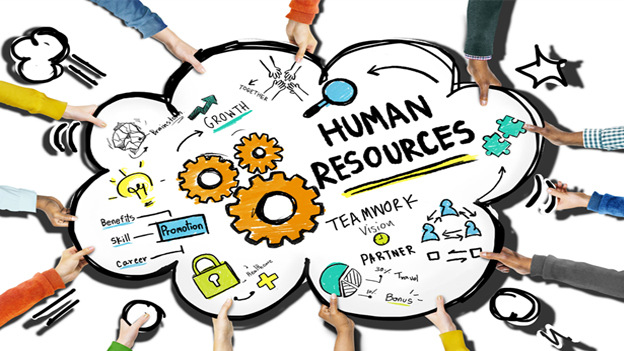What are the benefits of training in HRM?
Training in Human Resource Management (HRM) offers a wide range of benefits for both employees and organizations. Here are some of the key advantages of training in HRM:
Enhanced Employee Performance
Training equips employees with the necessary knowledge and skills to excel in their roles. It improves their job performance, productivity, and efficiency.
Increased Job Satisfaction
Providing training opportunities shows employees that the organization values their growth and development. Satisfied employees are more likely to be motivated and engaged in their work.
Reduced Employee Turnover
Employees are more likely to stay with an organization that invests in their professional development. Reduced turnover saves recruitment and training costs and contributes to a stable workforce.
Skill and Knowledge Improvement
Training helps employees update their skills and knowledge in line with industry trends and technological advancements, ensuring they remain competent and relevant.
Empowerment and Confidence
Training empowers employees by giving them the tools and confidence to take on new challenges and responsibilities, making them feel more capable and valued.
Improved Leadership Development
Leadership training identifies and nurtures potential leaders within the organization, preparing them for future leadership roles and succession planning.
Enhanced Organizational Performance
A well-trained workforce contributes to overall organizational success and achievement of strategic goals.
Consistency in Operations
Standardized training programs ensure that all employees follow best practices, leading to consistent and high-quality performance.
Compliance and Risk Management
Training ensures that employees are aware of and comply with legal and safety requirements, reducing the risk of non-compliance and potential legal issues.
Adaptability to Change
Training helps employees adapt to changes in the workplace, whether due to technological advancements or shifts in business strategies.
Positive Workplace Culture
A culture of learning and development fosters a positive work environment, where employees feel supported and motivated to grow.
Employee Engagement and Loyalty
Investing in employee development increases engagement and loyalty, as employees appreciate the opportunity to enhance their skills and advance their careers.
Customer Satisfaction
Well-trained employees provide better customer service, leading to increased customer satisfaction and loyalty.
Innovation and Creativity
Training encourages employees to think critically and creatively, leading to innovative solutions and improved processes.
Competitive Advantage
Organizations that prioritize employee training gain a competitive edge by cultivating a skilled and adaptable workforce that can respond effectively to market changes.
Overall, training in HRM is a strategic investment that drives employee satisfaction, performance, and organizational success. It helps create a talented and engaged workforce capable of meeting the challenges of a dynamic business environment.
Best HR course in Chandigarh It is provide by Cbitss in sector- 34 in Chandigarh
What is the role of trainer in HRM?
The role of a trainer in Human Resource Management (HRM) is essential in facilitating learning and development within an organization. Trainers play a crucial role in designing and delivering effective training programs to enhance the skills, knowledge, and capabilities of employees. Here are the key responsibilities and roles of trainers in HRM:
Training Needs Analysis
Trainers are involved in conducting a training needs analysis to identify the specific learning needs and skill gaps of employees. This analysis helps in tailoring training programs to address the identified areas for improvement.
Training Program Design
Trainers collaborate with HR professionals and subject matter experts to design training programs that align with the organization’s objectives and meet the identified training needs. They create training materials, outlines, and instructional plans.
Delivery of Training
Trainers conduct training sessions using various methods such as classroom lectures, workshops, e-learning, on-the-job training, simulations, and role-plays. They engage participants and ensure that the training is interactive and effective.
Facilitation of Learning
Trainers facilitate learning by explaining concepts, providing real-life examples, encouraging discussions, and answering questions to ensure participants grasp the training content.
Monitoring Progress
Trainers assess participants’ progress during the training and provide support to those who may be facing challenges in learning.
Feedback and Evaluation
Trainers collect feedback from participants to evaluate the effectiveness of the training program. They use this feedback to improve future training sessions and make necessary adjustments.
Continuous Improvement
trainers work on enhancing their training skills and staying updated with the latest training techniques and technologies to continuously improve the quality of training delivery.
Individual Coaching
In some cases, trainers may provide one-on-one coaching or mentoring to employees who need additional support in specific areas.
Training Record-Keeping
Trainers maintain records of training sessions, attendance, and participant progress for HR records and compliance purposes.
Creating Training Materials
Trainers develop training materials, including handouts, presentations, and interactive exercises, to support the learning process.
Staying Updated
Trainers keep themselves updated on industry trends, best practices, and the latest advancements to ensure the training content remains relevant and impactful.
Facilitating Team Building
Trainers may also facilitate team-building activities and workshops to foster teamwork and collaboration among employees.
Overall, trainers in HRM are instrumental in ensuring that employees receive the necessary knowledge and skills to perform their jobs effectively, contributing to the growth and success of the organization. They play a vital role in creating a learning culture and promoting employee development within the company.
If you required any then visit our website:- HR course in Chandigarh
Read more article:-Thegroupofambikatarlor.
